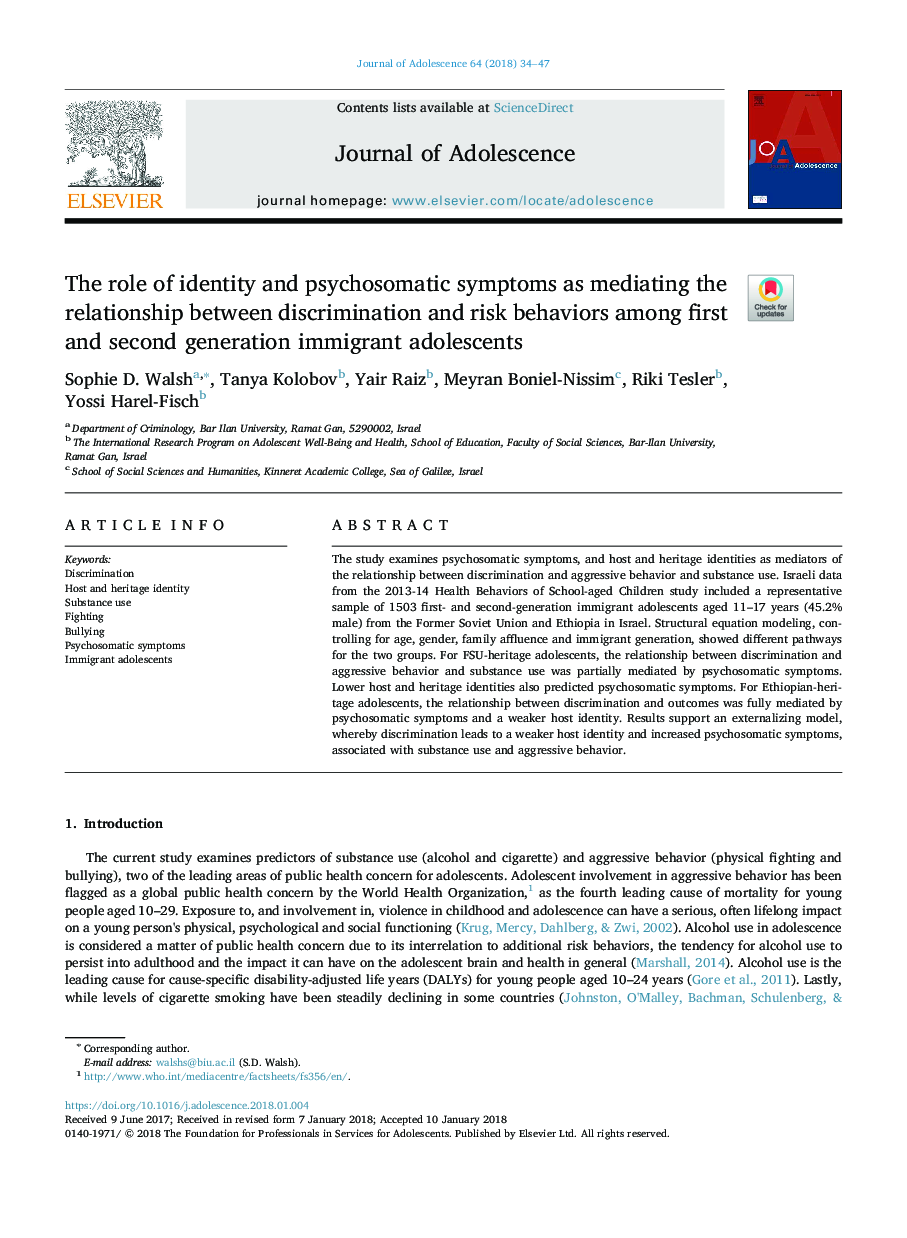| Article ID | Journal | Published Year | Pages | File Type |
|---|---|---|---|---|
| 7240914 | Journal of Adolescence | 2018 | 14 Pages |
Abstract
The study examines psychosomatic symptoms, and host and heritage identities as mediators of the relationship between discrimination and aggressive behavior and substance use. Israeli data from the 2013-14 Health Behaviors of School-aged Children study included a representative sample of 1503 first- and second-generation immigrant adolescents aged 11-17 years (45.2% male) from the Former Soviet Union and Ethiopia in Israel. Structural equation modeling, controlling for age, gender, family affluence and immigrant generation, showed different pathways for the two groups. For FSU-heritage adolescents, the relationship between discrimination and aggressive behavior and substance use was partially mediated by psychosomatic symptoms. Lower host and heritage identities also predicted psychosomatic symptoms. For Ethiopian-heritage adolescents, the relationship between discrimination and outcomes was fully mediated by psychosomatic symptoms and a weaker host identity. Results support an externalizing model, whereby discrimination leads to a weaker host identity and increased psychosomatic symptoms, associated with substance use and aggressive behavior.
Related Topics
Health Sciences
Medicine and Dentistry
Public Health and Health Policy
Authors
Sophie D. Walsh, Tanya Kolobov, Yair Raiz, Meyran Boniel-Nissim, Riki Tesler, Yossi Harel-Fisch,
